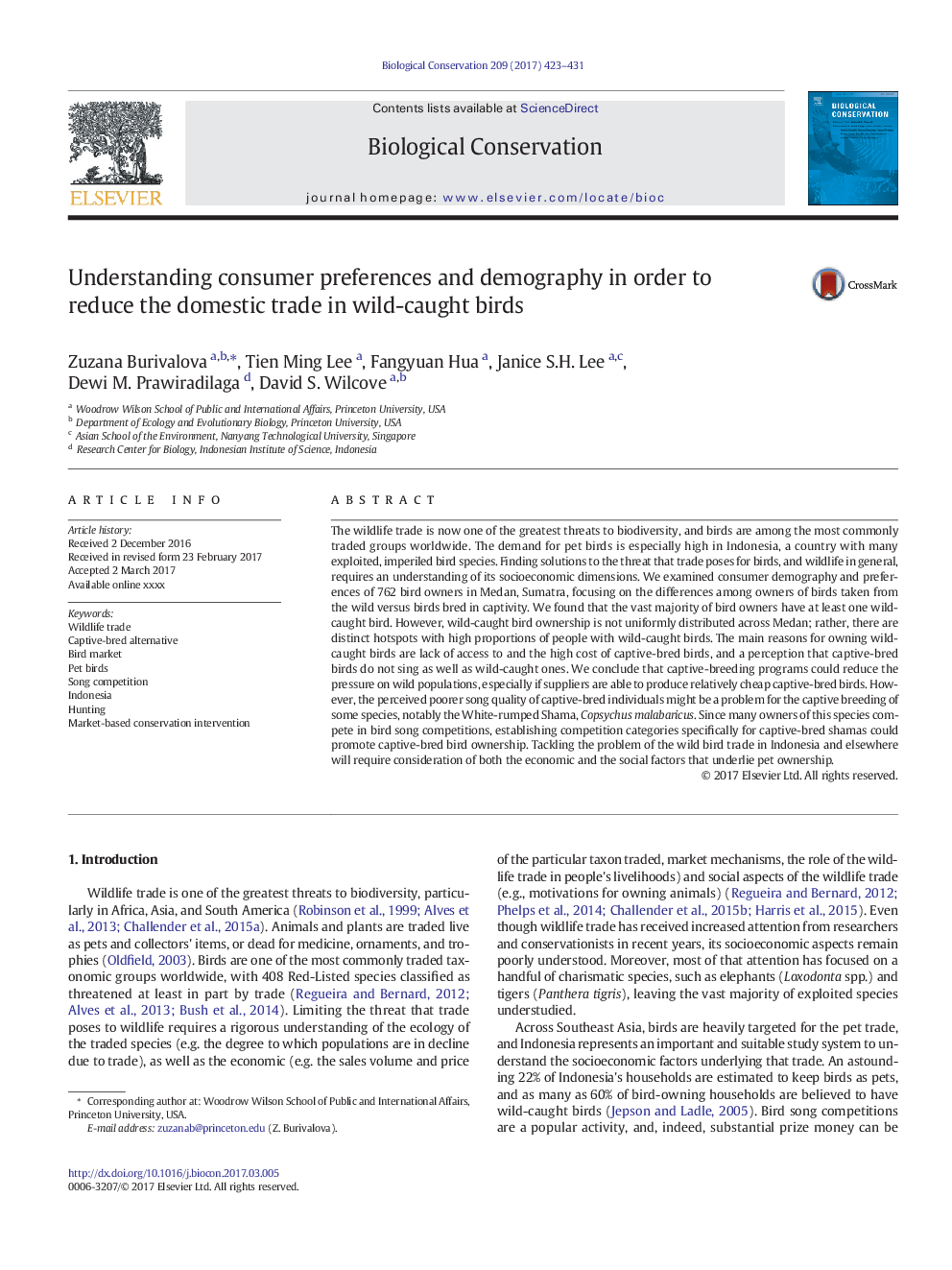ترجمه فارسی عنوان مقاله
درک ترجیحات مصرف کننده و جمعیت شناسی به منظور کاهش تجارت داخلی در پرندگان وحشی
عنوان انگلیسی
Understanding consumer preferences and demography in order to reduce the domestic trade in wild-caught birds
| کد مقاله | سال انتشار | تعداد صفحات مقاله انگلیسی |
|---|---|---|
| 140991 | 2017 | 9 صفحه PDF |
منبع

Publisher : Elsevier - Science Direct (الزویر - ساینس دایرکت)
Journal : Biological Conservation, Volume 209, May 2017, Pages 423-431
ترجمه کلمات کلیدی
تجارت حیوانات خانگی، جایگزین تسخیر شده، بازار پرنده، پرندگان حیوانات خانگی، رقابت آهنگ، اندونزی، شکار، مداخله حفاظت مبتنی بر بازار،
کلمات کلیدی انگلیسی
Wildlife trade; Captive-bred alternative; Bird market; Pet birds; Song competition; Indonesia; Hunting; Market-based conservation intervention;

